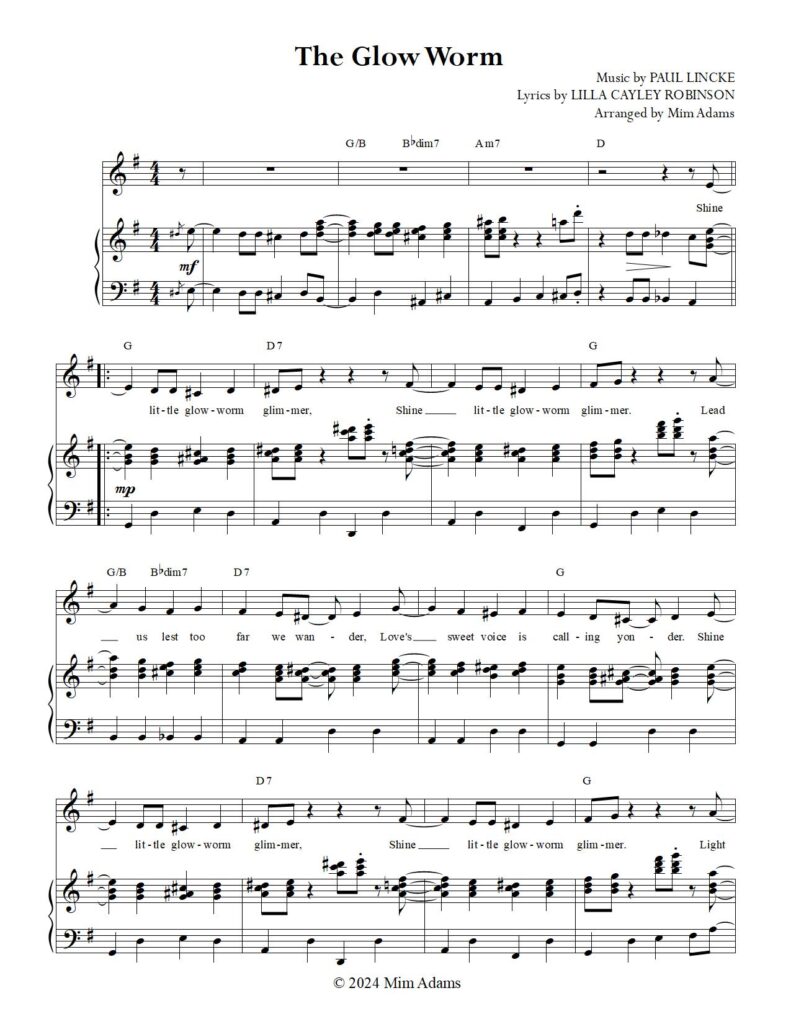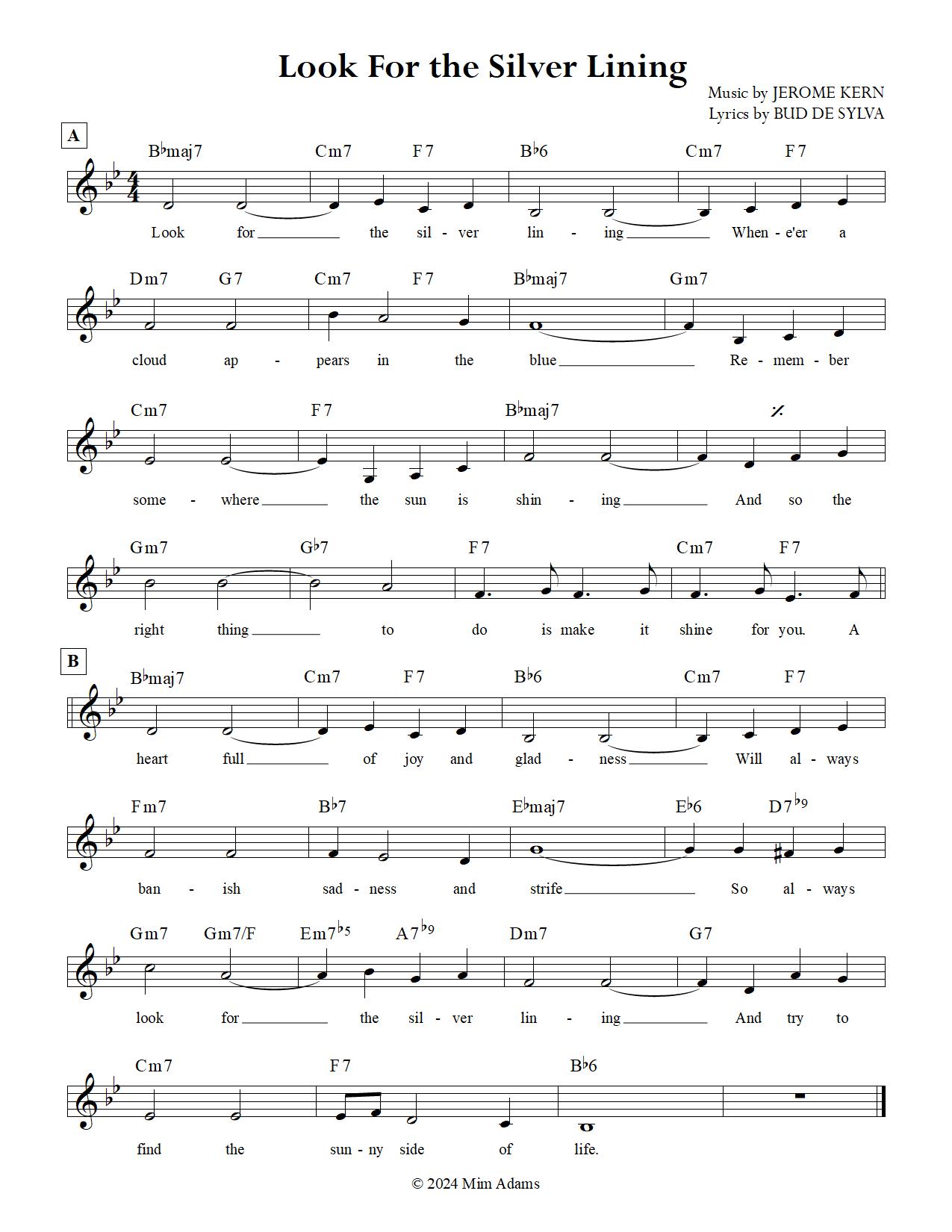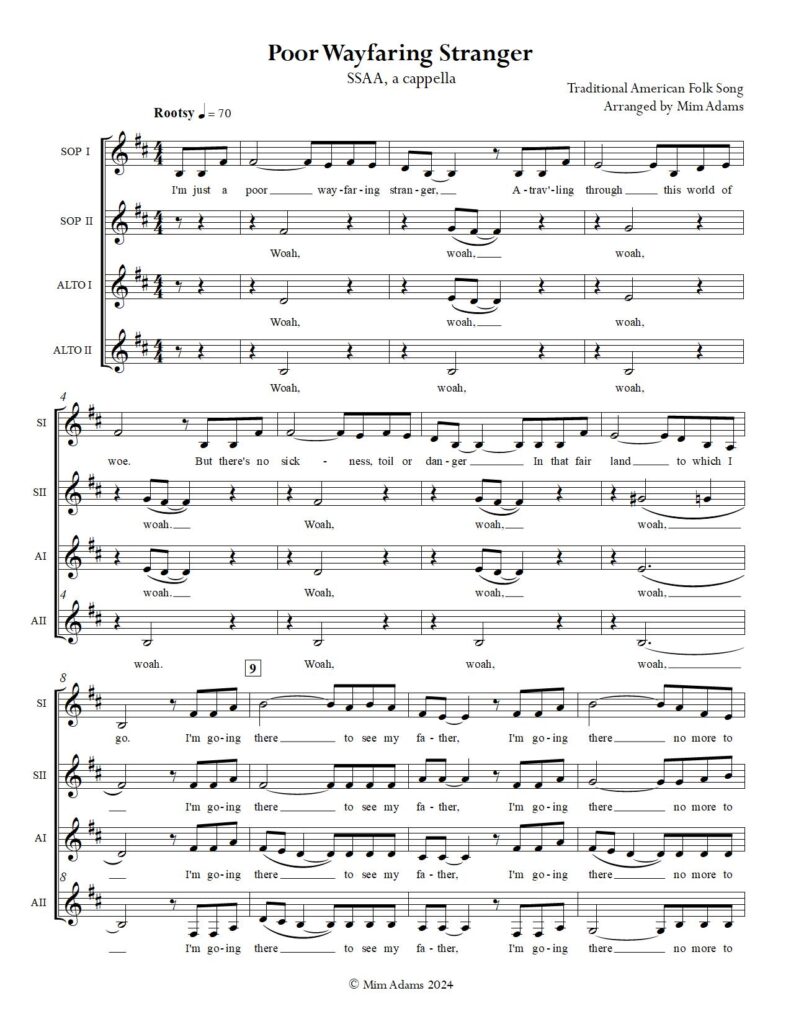You need a chart? I can help
I can engrave your handwritten scores, transcribe music from audio recordings, and adapt scores for your unique needs.
Singers, I can make that lead sheet for you, or transcribe the piano part for the version you love. Composers, I’ll professionally engrave your score and make the parts for different instruments.
Having the music written clearly and accurately makes things easier for everyone. Rehearsals run smoothly with the right materials, and everyone feels more performance ready.
How does custom sheet music work?
Project information includes what the task is (engraving only? transcribing?), what the voices/instruments are, how long it is (length in minutes or bars), the delivery format, the delivery timeline, and any other pertinent information. If you’re not quite sure what you need, I can help you choose the right option.
Source material is usually a PDF or photo of your pages, or an audio or video recording. Even with no material ready to go, we can get started with some discussion and build a plan from there.
Price estimates are based on the project information above and how complex it is to input and layout in my notation program. Larger projects may require paying a deposit or could be divided into smaller parts treated as separate projects.
Delivery format is usually a PDF file. I can send MIDI, XML, or Finale’s MUSX files*, and audio files in MP3 or WAV. If you need something else, feel free to request your preferred format and I’ll see what I can do. *Yes! I use Finale for music notation (not Sibelius).
Delivery timeline depends on your project requirements. Normal delivery of a normal-size project (eg. piano/vocal sheet music transcription for a three-minute song) is usually two to four weeks. Any rush projects will have a speedy delivery charge added to the price.
Drafts will be sent for your approval, and I’m happy to make the revisions you need. You own the final draft of your score and are free to use it as you please (respecting copyright if it’s not your original composition). I do not own your score, and will not use, sell, or share it without a prior agreement from you. If you engage my services as a collaborative arranger, we will form a sharing agreement as part of the project planning.
Related services I can provide include MP3 parts tracks for practicing, proofreading your scores, collaborating as an arranger, or I can teach you how to do all these things yourself!
What sheet music do you need?
Check out these samples of different music scores to help decide what type of score is best for your music.
Sheet music

A staff for the vocal melody and lyrics, and a grand staff for written piano notes. It often includes chord symbols too.
Lead sheet
One music staff with the melody line, lyrics, and chord symbols. Perfect for handing out less pages to the band!
A basic lead sheet is just the tune. In jazz, it’s used for learning a song or by pros who can improvise intros and endings.
An enhanced lead sheet includes written intros and endings and any other creative arrangement details (eg. reharmonization, or rhythms for the band).

Choral score

A staff for each vocal part (eg. Soprano, Alto, Tenor, and Bass), and a grand staff for written piano notes.
A condensed choral score merges Soprano and Alto into one staff, and Tenor and Bass into one staff. Condensed scores may not work if the vocal parts are too rhythmically varied from each other.
Don’t need sheet music? Consider these alternate materials
Chord charts with no melody lines, only chords laid out on the staff for timing. Similar to iReal pro.
Lyric sheets with chords are just what they sound like. These are easy to find on the internet; however I can make sure they are actually correct.